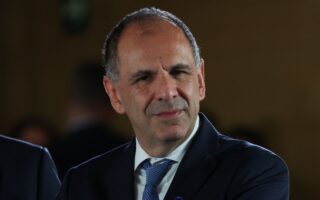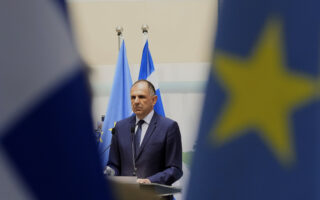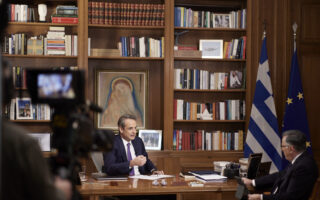Kathimerini, Milliyet editors write for each other’s audience
The two newspapers are opening a channel of communication with articles from their top editors addressing each other's audience on the prospects of Greek-Turkish detente.
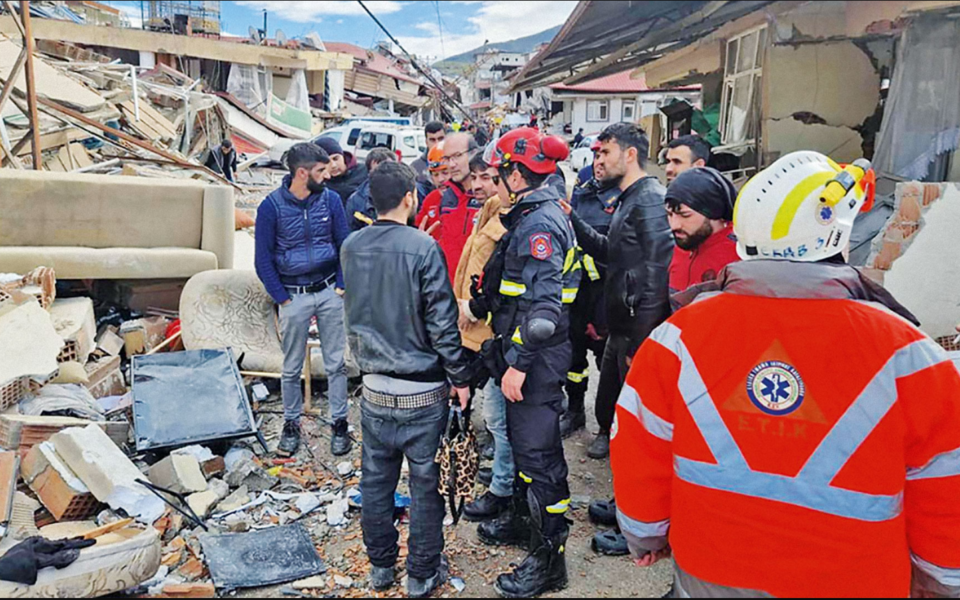
Early last year, when eastern Turkey was devastated by powerful earthquakes, neighbors and eternal rivals Greece and Turkey entered, not for the first time in their recent existence, a period of detente. Whether this reconciliation will be durable and fruitful will be largely determined this year.
The top editors of two major newspapers in the two countries, Milliyet’s Ozay Sendir and Kathimerini’s Alexis Papachelas decided to address the other paper’s readers in a gesture that highlights the need to end mutual suspicion.
“If we want to maintain the existing good climate, it is important to communicate directly more often and to understand each other better, (for example) how Greek public opinion perceives statements or actions that suggest revisionism and a challenge to our sovereignty,” writes, among other things, Papachelas.
“If we can learn to share instead of divide, we will both benefit,” notes Sendir.
Both articles were published in the newspapers’ Sunday editions
One Turkish man, two faces of Athens
Milliyet’s Ozay Sendir writes to Kathimerini readers
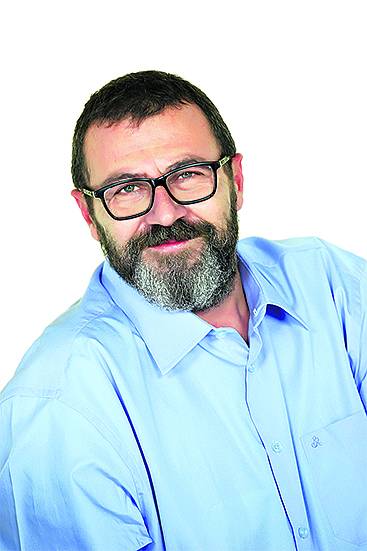
I tasted saganaki for the first time in my life on New Year’s Eve 1990.
Maybe it was the immaturity of youth, but I failed to register the name.
Years later, in Thessaloniki, at a dinner with then-mayor Yiannis Boutaris, I tasted this fried cheese appetizer again and, this time, I immediately memorized the name.
From then on, whenever and wherever I went to Greece, whether in Patmos, Toroni, Dikella or Asprovalta, saganaki was always on my dining table.
Unfortunately, I had to break this rule in December 2023.
Following the Second Greece-Turkey Media & Academy Forum, I asked for saganaki at the restaurant we frequented. The friend who was tending to our table proposed mozzarella instead. At the end of the meal, I asked for Greek coffee, but was told they only had espresso. I was a bit surprised, but mostly sad.
It is not surprising that cities with only a few centuries of existence see their culture transformed by the winds of globalization, but this is Athens we are talking about. If Barcelona and Rome can preserve their culture, does Athens need to change so much?
Change is an important concept, the passing time changes us all, a bit.
In 1989, I was writing romantic phrases, such as that migratory birds do not know what a continental shelf is and that humans should not be slaves to the borders they create.
I have left this romanticism behind, I am 54 now and in one of my more rational moments I can say that the fish roaming the Aegean have no notion of maritime jurisdiction. Now, a new window of opportunity has opened for us.
If we can learn to share instead of divide, we will both benefit.
And our benefit will be the loss of the countries that peddle weapons, the opportunistic capitals that try to cement their presence into our geography and those who build a personal career in politics on on hate. Of course, it won’t be easy; we cannot even yet agree on the number of issues we disagree on, but we managed to unclench our fists and offer handshakes and started to care and listen, not just talk. A human’s most difficult steps are the first, baby steps; after those, everything becomes easier.
To think differently and have different convictions is not an obstacle to serving the same purpose.
Two of my favorite artists, Manos Hatzidakis and Mikis Theodorakis, had opposing views on life both both took Greek music to the pinnacle.
They were people who very much respected each other and spoke thoughtfully of each other. Our countries can do the same.
The songs of Theodorakis, whose mother was from Cesme and who was born in Chios, a small distance away across a narrow strait (his father was from Crete), are sung in the same earnest way on both sides of the Aegean, this is our shared treasure.
But our lives do not just intersect over songs, tzatziki or baklava.
Both Greek and Turkish peoples have suffered greatly from military coups and military-backed governments and have paid a heavy price for that.
The hand behind booth our and your military coups was always the same. And this should say a lot.
Because I prize the friendship we have developed with Alexis Papachelas and Kathimerini, I will not abuse my privilege as a guest columnist by taking up too much space.
On our side, we listened to the (Turkish) song “Ben seni sevdugumu tum dunyaya bildirdim” (translation: “I told the whole world that I love you”) broadcast by (Greek state TV) ERT on the morning of February 8 (2023) and we watched it many times tearfully amid the pain of those days.”
While still in pain, we were saddened for the Greek citizens who lost their lives in the March 1 train disaster and we understood each other better (Note: The Tempe accident was on Feb. 28, but it was past midnight in Turkey).
We who live on both sides of the Aegean are people whose emotions have a great part on our outlook and in rivalry as in peace we can go from 1 to 100.
I wish everyone a good year, full of health and peace.
A channel for truth
Kathimerini’s Alexis Papachelas to Milliyet readers
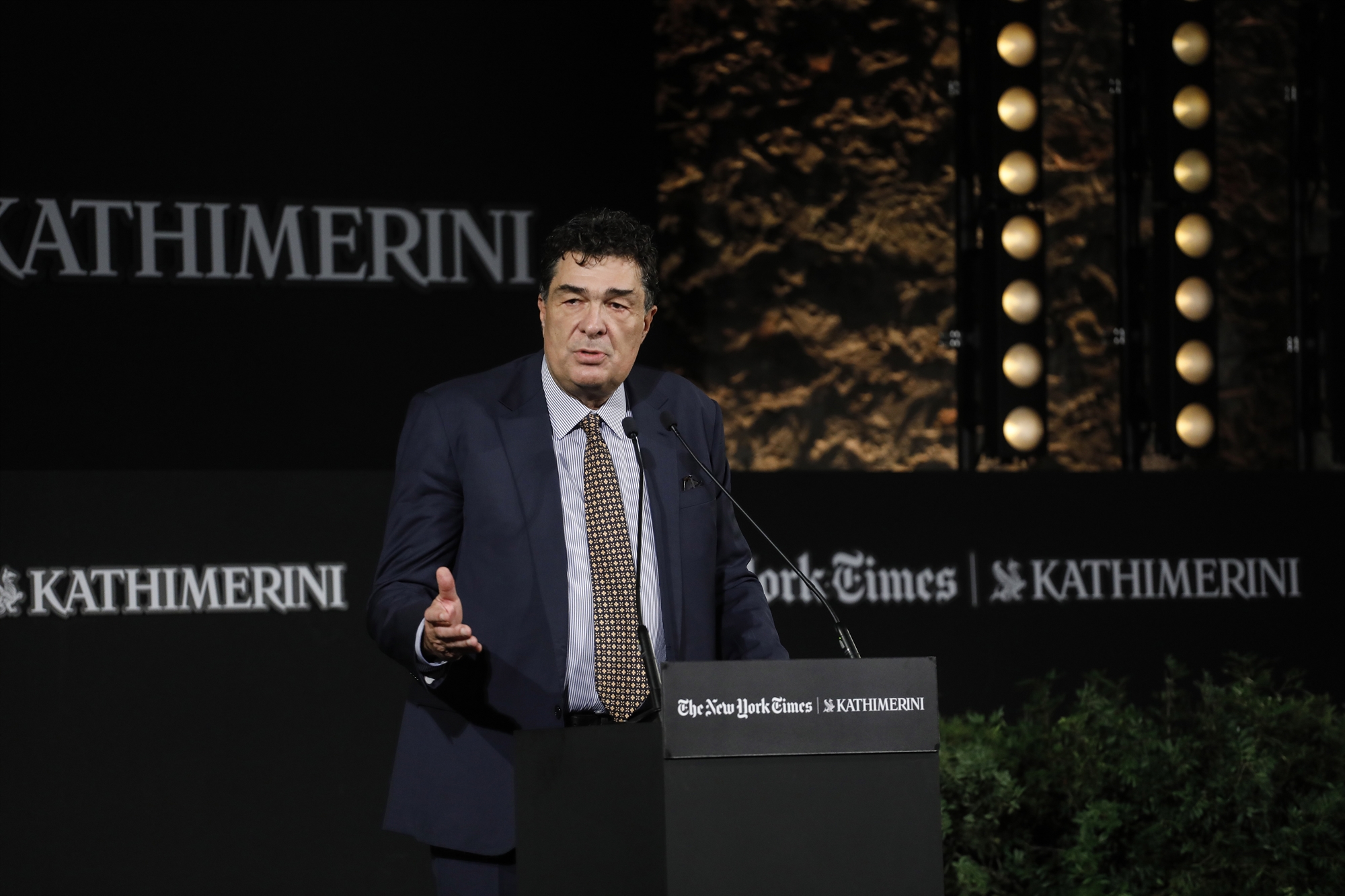
The new year begins with Greece and Turkey having entered a new phase of a thaw in relations. This joint publication of our articles is a proof of that.
I hope that this calmer period will last a long time. We have proven over the past hundred years that we can be “great opponents”, so to speak, but also great friends. Our fates are inevitably intertwined, because we are prisoners of geography and, at times, history. If you peruse the front pages of our historic newspapers, you will find supreme moments of conflict but also cooperation.
But if we want to maintain the existing good climate, it is important to communicate directly more often and to understand each other better. The two Media & Academy forums that took place first in Istanbul and then in Athens, with the participation of academics, think tank analysts and journalists were for me, personally, very useful. In discussions with our neighbors, I understood, for example, how important to Turkish opinion are the new US military bases in some parts of Greece, which are perceived as part of a plan to envelope and suffocate Turkey. I may not agree with this position at all, but it was very useful for me to listen to it and understand me. I hope our discussions were similarly useful for our interlocutors and that they understood how Greek public opinion perceives statements or actions that suggest revisionism and a challenge to our sovereignty.
Ozay Sendir and I agreed to write these articles to restore a permanent channel of communication, which could prove very useful in a future Greek-Turkish crisis. Too many times, misunderstandings or wrong interpretations of a statement or move have brought us to the brink of conflict. And nothing could be more useful in these cases than direct communication between journalists who can correctly detect what is true and what is false, especially in our era of fake news.
As we welcome 2024, we all understand we have entered an extended phase of global instability. The world around us is becoming ever more unpredictable and dangerous. Us journalists have an obligation to interpret what is happening, explain developments precisely and without illusions. With our communication, we can help promote mutual understanding and stability in a region that is adjacent to every major crisis we faces.
I wish Milliyet readers a good and peaceful year!


